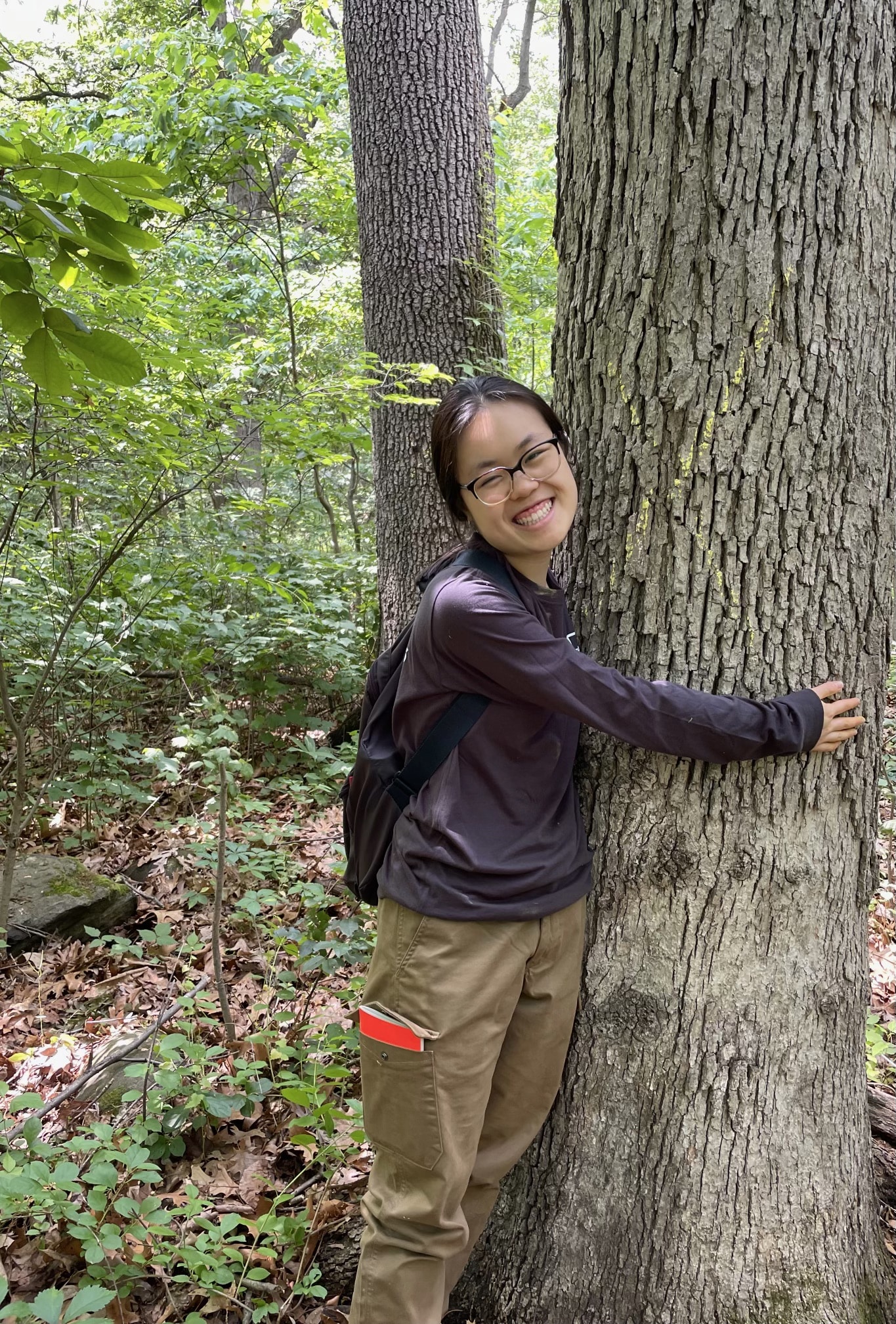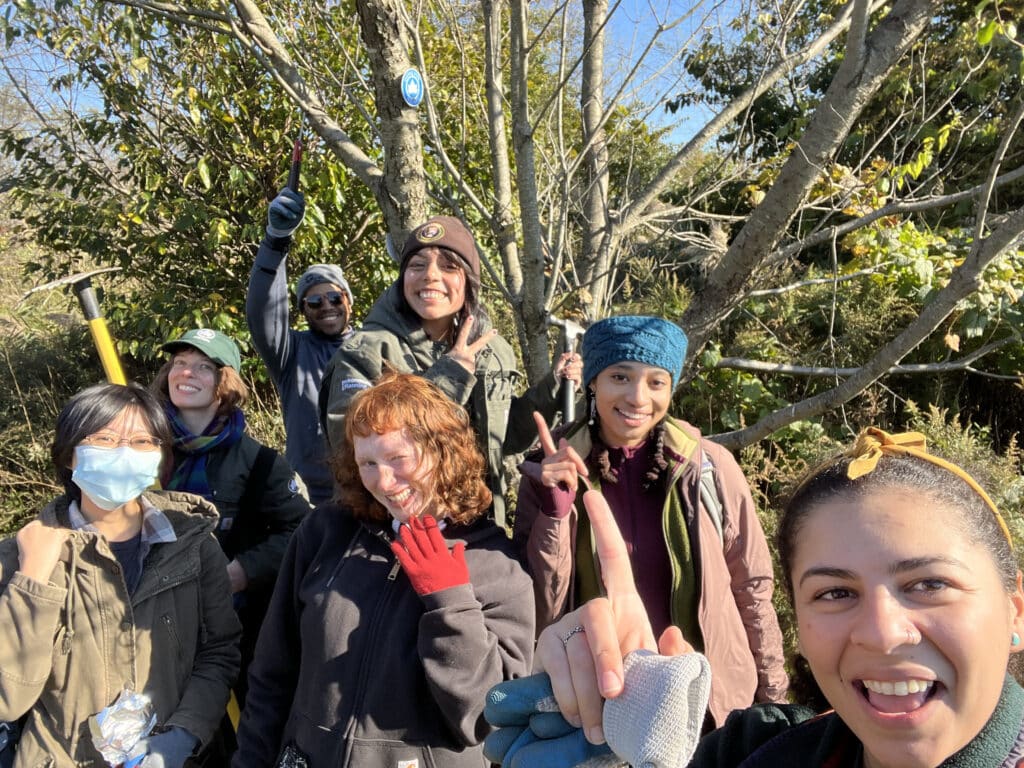Field Notes: Q&A with Intern Balsamine Chen
By Natural Areas Conservancy on June 15, 2023

By Natural Areas Conservancy on June 15, 2023

Balsamine Chen is an intern in the Natural Areas Conservancy’s Summer 2023 CUNY internship program, working on the Rapid Assessment of Upland Restoration Sites project. She is a sophomore at CUNY pursuing a double major in Environmental Studies and Chinese.
Read on to learn more about Balsamine and what she’s been up to at the NAC!
BC: Growing up, my only experiences in natural spaces were in small neighborhood parks for short periods of time. In environmental studies classes, I’d learned about the importance of biodiversity and protecting green spaces as a solution to climate change, but I knew that I couldn’t fully see their significance yet because of my limited experience in such places. I saw the NAC internship program as an opportunity to truly connect to and understand the importance of natural areas while getting my first taste of field work.
BC: I am involved in the Rapid Assessment of Upland Restoration Sites project, which utilizes RSA (Rapid Site Assessment) protocol to evaluate the health of forests in New York City. I was drawn to this project because I had learned about adaptive management in my environmental studies class the previous semester, and this project is a prime example of it. By identifying all native and invasive plants and estimating their cover in a site before and after restoration work, the NAC and NYC Parks are able to better evaluate the efficacy of their restoration projects and make changes as needed. Through collecting RSA data, I’ve been able to develop my plant identification skills, better understand the organization of restoration projects, and see a variety of ecological communities in different boroughs.
BC: Jamaica Bay Wildlife Refuge is definitely one of the top natural areas that I’ve discovered this summer. Near the visitor center, there’s a trail that surrounds a large pond and you can see many different plant and bird species while enjoying the tranquility of the space. If you go, make sure to pack binoculars (also available in the visitor center) as well as bug spray for the mosquitos—it’s worth it for the view.
BC: Right now in mid-July, I’ve been seeing Asiatic dayflowers pop up around me in the field and I love seeing their bright blue petals against the green ground cover. I also love sassafras trees and spicebush because their leaves smell so fragrant when crushed.
BC: First, go outside and hug a tree! Not only will it make you feel better, but it will also more clearly establish the connection between us and the physical world. Second, I think that simple actions can make a lot of difference if they create even the smallest impact on ourselves or our environment. Saving garbage for the garbage can, learning about the plants around us, or volunteering in a NYC Parks event produces visible benefits while leading us to further commit to protecting our natural areas, which fuels future projects. I think it’s also important to remember that a place doesn’t have to be lush with vegetation to be important. In Conference House Park last week, we assessed a rather plain-looking site just a few feet away from the street that ended up having more than 80 plant species—the most biodiversity my crew had ever seen in a site.
BC: Through my internship at the NAC, I’ve learned about so many other environmental organizations in the city such as the Central Park Conservancy and the Greenbelt Native Plant Center. I hope to volunteer in some of these organizations during the school year to continue learning about different areas of conservation through hands-on work. As a Chinese double major, I also hope to explore how conservation efforts in the United States and China differ and how they can be connected.
